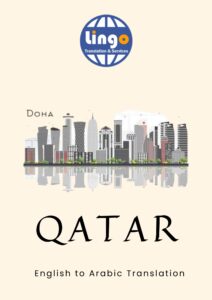Top Tips on Handling Specialist Terminology in Translations & Interpretation
One of the challenges in the translation and interpretation industry is demonstrating high fluency and competency in managing specialist or technical language. The requirement to handle specialist terminology is paramount, particularly when translating or interpreting content related to law, medicine, finance, and media. The skill to manage translation terminology within these fields goes beyond the usual linguistic capabilities, requiring in-depth understanding and familiarity with the subject matter.
This article will delve into effective strategies to effectively handle legal translation, medical translation, media translation, financial translation, legal interpretation, medical interpretation, media interpretation, and financial interpretation. The exhaustive guide aims to assist translators and interpreters in refining their skills and advancing their capacities in managing specialist terminology.
1. Legal Translation & Legal Interpretation
Legal translation and interpretation involve utilizing legal terminology, which can be daunting and complex. However, mastering it ensures accuracy and precision, which are crucial in this field.
Mastery of Legal Jargon:
This is the primary requisition in legal translation. Translators and interpreters must comprehensively understand legal jargon in the source and target languages. Knowledge about key terminologies, phrases, and legal maxims can significantly influence the accuracy of the translation.
Stay Updated:
Laws and associated terminologies change with time. Staying updated with the modifications in legal documentation, proceedings, and terminologies is essential.
Knowledge about the Legal Systems:
Legal systems and procedures can significantly differ in diverse countries. Therefore, in-depth knowledge of the structure and proceedings involved in the legal systems of both source and target languages can enhance the effectiveness of legal interpretation.
2. Medical Translation & Medical Interpretation
Medical translation and interpretation require exceptional accuracy and precision, as any misinterpretation can lead to grave consequences.
Medical Expertise:
Translators and interpreters involved with medical content should have a comprehensive understanding of medical terminology and a strong grasp of the subject. This expertise can range from familiarizing oneself with various diseases, medical procedures, and treatment methods to understanding different pharmaceutical terms.
Certification: Medical translation or interpretation certification can validate your knowledge, skills, and expertise.
3. Media Translation & Media Interpretation
Handling media translation and interpretation requires a unique skill set, as these services often target mass audiences.
Understanding the Media Landscape:
Knowledge about the media landscape, current trends, and popular jargon can enhance the quality of translation and interpretation.
Cultural Sensitivities:
Translators and interpreters in the media must understand cultural nuances and consider the audience’s sensitivities.
4. Financial Translation & Financial Interpretation
Financial documents carry significant weight and demand a highly skilled translator or interpreter.
Financial Literacy:
A good understanding of financial translation terminology, procedures, and regulations is essential. Familiarity with standard financial documents like balance sheets, income statements, cash flow statements, and auditors’ reports is necessary.
Confidentiality:
Data protection is crucial, especially when handling sensitive financial information. Adhering to strict confidentiality regulations can build trust and reliability in your services.
Across all fields, three broader strategies amplify specialist skills:
1. Continuous Learning:
Regularly updating your knowledge and honing your skills is crucial in specialist fields. Whether financial, medical, media, or legal, participating in relevant courses, workshops, webinars, and talks can be beneficial.
2. Networking and Collaboration:
Engaging with professional groups or forums can provide valuable insights. Joining discussions with fellow translators and interpreters practicing in similar fields can enrich your understanding of specialist terminologies.
3. Using Technological Tools:
Numerous software and translation tools can assist translators and interpreters in understanding and handling difficult terminology. However, these should not replace human knowledge but be used as supplementary aids.
Conclusion
In conclusion, managing specialist terminology in translations and interpretations is challenging. It requires deep understanding, continuous learning, and commitment, particularly in the legal, medical, media, and financial fields. As you progress and acquire more experience and knowledge, proficiently handling these specialized terminologies will inevitably enhance your success in the industry.





